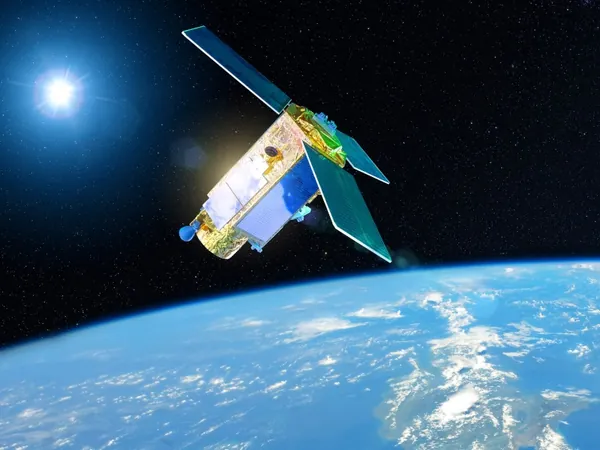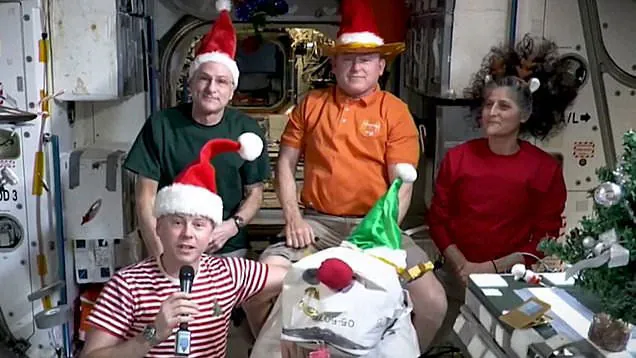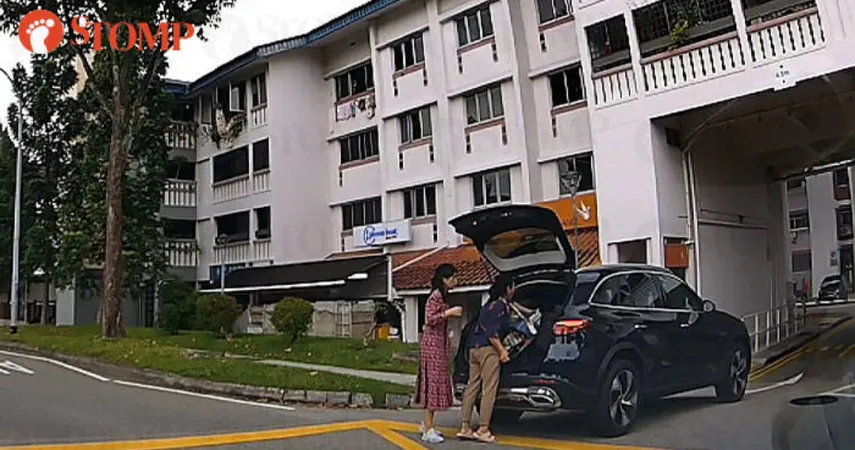
Réaltra Embarks on Revolutionary AI Innovation for Satellite Failure Detection!
2024-12-18
Author: Li
Introduction
In a groundbreaking move for satellite technology, Dublin's Réaltra Space Systems Engineering has secured a lucrative contract with the European Space Agency (ESA) to pioneer the development of AI and machine learning applications aimed at failure detection and recovery systems in Low Earth Orbit satellites. This initiative is poised to transform how satellites operate, decreasing costs and significantly reducing downtime, according to industry experts.
Collaboration with Ubotica
Réaltra is collaborating with fellow Dublin-based tech company, Ubotica, which will serve as a subcontractor for this forward-thinking project. Named ‘Machine Learning-Based On-Board Autonomy’, the project has already passed its preliminary design review, setting the stage for advanced innovations in satellite technology.
Objectives of the Project
The primary objective of the Réaltra team is to deploy AI/ML systems that are energy-efficient, enabling fast processing of satellite data through low-latency inference. This means that any anomalies detected will be addressed almost instantaneously, equipping satellites to operate with greater independence and less reliance on human intervention.
Using EIRSAT-1 Data
To power this ambitious venture, Réaltra will harness datasets from EIRSAT-1, Ireland’s inaugural satellite launched just last year. The use of AI and machine learning in monitoring these satellites holds tremendous promise; not only could it streamline operations and slash costs, but it could ultimately pave the way for the more extensive use of commercial off-the-shelf electronic components in satellite designs, further driving down future avionics costs.
Expert Insights
Danny Gleeson, Chief Commercial Officer of Réaltra, expressed enthusiasm about the project, stating, “As the global space economy continues to grow, we recognize the vital need to innovate and evolve technologies to meet current and future challenges. Securing this ESA project is an exciting opportunity for us to contribute to cutting-edge space technology.”
According to recent projections from U.S. government sources, the number of active satellites in Low Earth Orbit is expected to explode to over 60,000 by 2030, a staggering increase from roughly 10,000 as of May 2023. This surge underscores the necessity for smarter satellites equipped with AI capabilities.
James Murphy, project lead and space software and AI engineer at Réaltra, emphasized the shifting landscape: “With the rise of large satellite constellations, the urgency for these satellites to augment their intelligence is imperative. On-board AI will soon transition from a luxury to a critical requirement for satellite missions, enabling unprecedented levels of autonomy.
Fintan Buckley, CEO of Ubotica, added, “Employing AI for real-time decision-making and autonomous operations marks a significant leap towards optimizing the operational lifespan of satellites. This technology is essential for enhancing communication, situational awareness, and the adaptability of an expanding satellite network.”
Réaltra's Track Record
Réaltra is no stranger to space innovation, having successfully launched two of its hardware technologies—a video telemetry system and a global navigation satellite system—earlier this year aboard the ESA's Ariane 6 rocket. Additionally, Ubotica recently teamed up with NASA to present research on ‘Dynamic Targeting’ for Earth observation, demonstrating the vast potential of AI in developing intelligent satellite systems.
Conclusion
As the space sector advances and faces increasing demands, Réaltra's strategic focus on AI-driven solutions for satellite operations paves the way for a new era of space exploration and technology. Will this project catapult Ireland to the forefront of the global space race? Only time will tell, but the future looks incredibly promising!




 Brasil (PT)
Brasil (PT)
 Canada (EN)
Canada (EN)
 Chile (ES)
Chile (ES)
 España (ES)
España (ES)
 France (FR)
France (FR)
 Hong Kong (EN)
Hong Kong (EN)
 Italia (IT)
Italia (IT)
 日本 (JA)
日本 (JA)
 Magyarország (HU)
Magyarország (HU)
 Norge (NO)
Norge (NO)
 Polska (PL)
Polska (PL)
 Schweiz (DE)
Schweiz (DE)
 Singapore (EN)
Singapore (EN)
 Sverige (SV)
Sverige (SV)
 Suomi (FI)
Suomi (FI)
 Türkiye (TR)
Türkiye (TR)